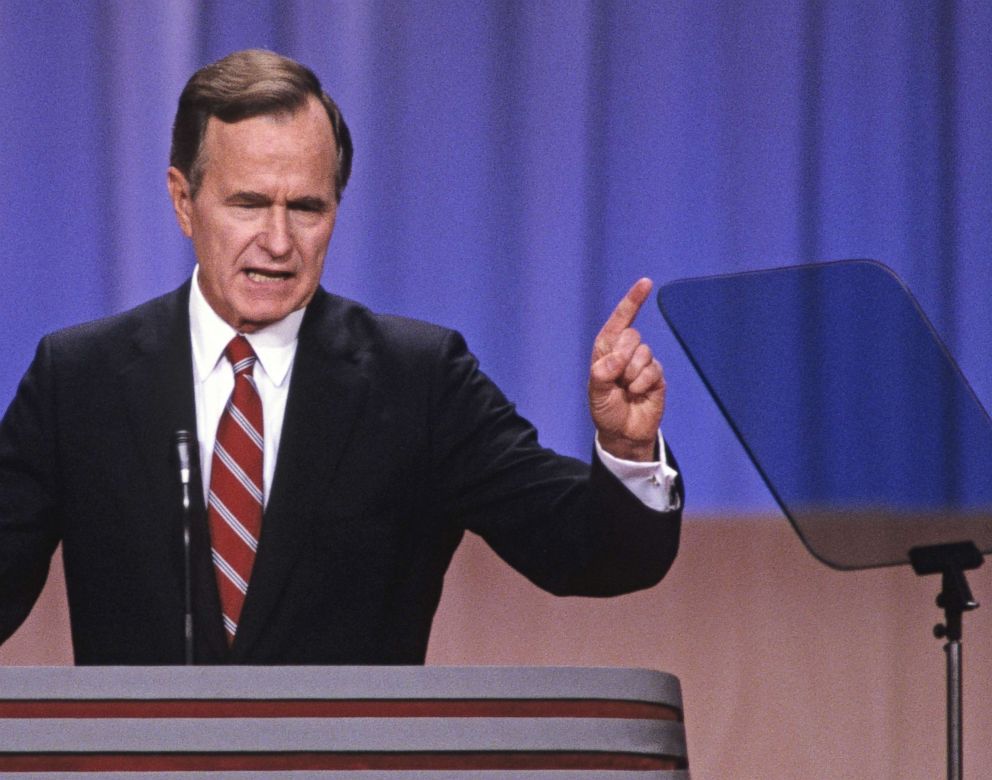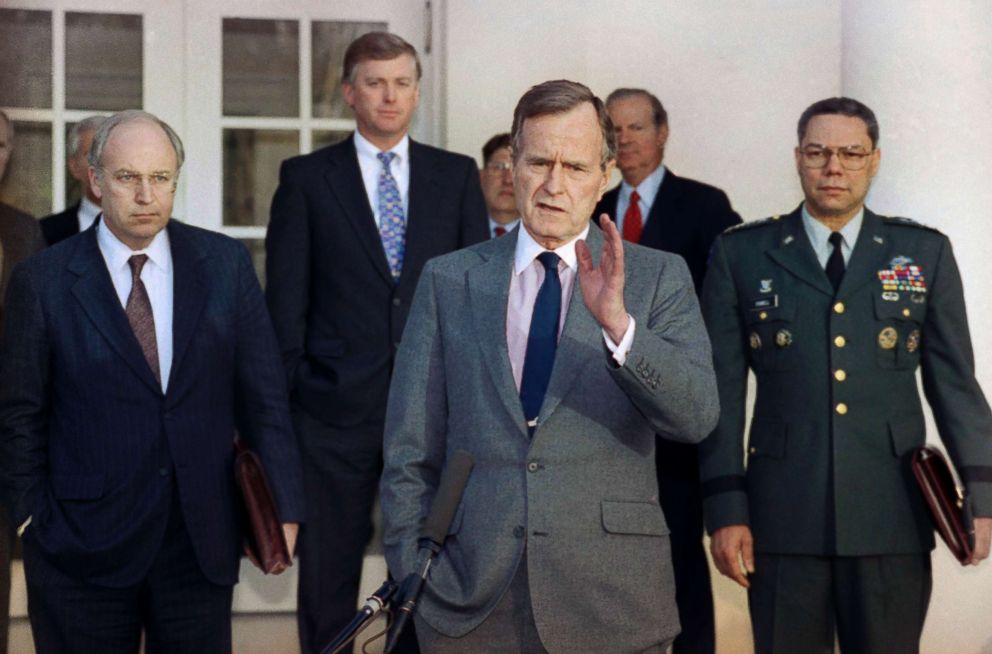COLUMN: The enduring heartbeat of George H.W. Bush
Bush was deeply hurt by his 1992 loss to Bill Clinton.
While it seems hard to believe now, George H.W. Bush left office 25 years ago last January lamenting that the nation never knew his "heartbeat."
Bush was deeply hurt by his 1992 re-election defeat at the hands of Democratic challenger Bill Clinton, who nurtured the perception that the out-of-touch Bush was indifferent to the concerns of everyday Americans.
As Bush packed his bags and left the White House toward an uncertain future, he feared he'd let down those closest to him and would be consigned to an "asterisk" in history, the Chester Arthur of his age.
He needn't have worried. As passions around his presidency receded over time, Bush, unlike most of his presidential predecessors, would live long enough to get a good sense of how he would be seen in posterity -- and the news was good.

Hardly an asterisk, the 41st president would come to be esteemed for his sheer competence in office during a consequential time, especially given his steady hand in foreign policy -- guiding the world toward a peaceful end to the Cold War as the Soviet Empire collapsed under its own weight; championing the reunification of Germany in the face of Western European opposition; and leading an unprecedented coalition of nations toward the liberation of Kuwait from Iraqi seizure in the Gulf War.
In domestic policy, his landmark legislative achievements included the Americans with Disability Act and the Clean Air Act, for which he would receive due credit. Even his political Waterloo -- breaking his "no new taxes" campaign pledge in order to seal a 1990 budget deal with a Democratic-controlled Congress -- has been vindicated by economists who credit the move as helping to pave the way toward the prosperity of the Clinton years. The Kennedy Library acknowledged as much when it honored him with its "Profile in Courage Award" in 2014.
But while he would see history's indebted nod, it almost certainly meant more to him that Americans heard his heartbeat loud and clear. In an increasingly barbed, self-aggrandizing world, he was revered for his character. The last of our World War II presidents, who began their reign in the White House in 1961 when John F. Kennedy proclaimed that the "torch has been passed to a new generation of Americans," Bush became an emblem of the best of the Greatest Generation: decent, humble, instinctively putting service above self. It was that ethos that helped boost the 2000 presidential candidacy of his son, George W., who would ascend to the presidency with the help of the trusted Bush brand name. The old man was a good egg, so why not give his son a chance?

Later the elder Bush showed his civility when he paired with his former rival, Clinton, at his son's behest to raise funds for disaster relief after a tsunami devastated Southeast Asia. The unlikely friendship between the two was an inspiring sign that hatchets could be buried in the name of something bigger.
And nearly a decade later, a new generation, born well after his presidency, became introduced to him in 2013 after the viral social media promulgation of a photo of him and the 2-year-old Leukemia-stricken son of one of his Secret Service agents -- both as bald as cucumbers -- after Bush shaved his head in solidarity.
Bush was by no means perfect. Political expedience occasionally got the better of him. He came out against the Civil Rights Act of 1964 during a failed bid for the Senate in his home state of Texas; was less than forthcoming about his knowledge of the Iran-Contra affair while he vice president in the Reagan years; and he was slow to condemn a racist 1988 GOP campaign ad featuring an African American convict. But more often than not, he led with his values.
Bush's call for a "kinder, gentler nation," may stand as his most enduring declaration, a characteristic appeal for America to be a compassionate society.
His heartbeat may have faded, but the hope resounds.
Mark K. Updegrove is ABC News' presidential historian and the author of "The Last Republicans: Inside the Extraordinary Relationship Between George H.W. Bush and George W. Bush." The views expressed in this column to not necessary reflect the views of ABC News or the Walt Disney Co.




